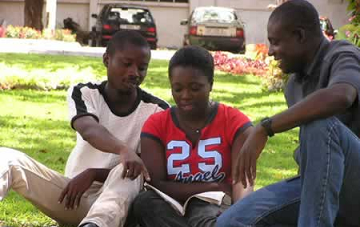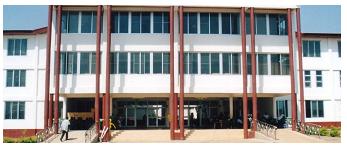University of Development Studies (Ghana)
 The University for Development Studies was established in 1992 as a multi-campus institution to serve the four northern regions of Ghana in which rural poverty and environmental degradation are generally prevalent. The University is expected to blaze a new trail in higher education by effectively combining academic work with practical hands-on training and experience and work among the communities. UDS’s website>>
The University for Development Studies was established in 1992 as a multi-campus institution to serve the four northern regions of Ghana in which rural poverty and environmental degradation are generally prevalent. The University is expected to blaze a new trail in higher education by effectively combining academic work with practical hands-on training and experience and work among the communities. UDS’s website>>
Institutional Profile
 The university’s commitment to poverty alleviation and the empowerment of poor and marginalized communities has resulted in a successful blend of academic programs with intensive, practical and demand-driven training. Civic engagement is mandatory for all students involved in the three-year degree program. UDS’s Institutional Profile>>
The university’s commitment to poverty alleviation and the empowerment of poor and marginalized communities has resulted in a successful blend of academic programs with intensive, practical and demand-driven training. Civic engagement is mandatory for all students involved in the three-year degree program. UDS’s Institutional Profile>>
Centre for Continuing Education and Interdisciplinary Research (CCEIR)
 CCEIR was established in July 2000 to promote and conduct basic, applied, policy-oriented, and demand-driven research and scholarship, and also to facilitate same in all the academic Faculties of the university. The Centre promoted and solicits for commissioned research and consultancies. Staff of the Centre also participates in teaching activities of the various Faculties. As one example, CCEIR conducted a baseline survey on knowledge, behavior and attitudes in relation to HIV/AIDS as part of the centre’s HIV/AIDS Education and Training project in Tertiary Institutions in Northern Ghana funded by the Ghana AIDS Commission. CCEIR also conducts research and teaching on other areas of concern to the community, including: Agriculture, Environment, Education, Migration and Displaced Peoples, Peace and Security, Poverty Reduction, and Development. Learn more about CCEIR>>
CCEIR was established in July 2000 to promote and conduct basic, applied, policy-oriented, and demand-driven research and scholarship, and also to facilitate same in all the academic Faculties of the university. The Centre promoted and solicits for commissioned research and consultancies. Staff of the Centre also participates in teaching activities of the various Faculties. As one example, CCEIR conducted a baseline survey on knowledge, behavior and attitudes in relation to HIV/AIDS as part of the centre’s HIV/AIDS Education and Training project in Tertiary Institutions in Northern Ghana funded by the Ghana AIDS Commission. CCEIR also conducts research and teaching on other areas of concern to the community, including: Agriculture, Environment, Education, Migration and Displaced Peoples, Peace and Security, Poverty Reduction, and Development. Learn more about CCEIR>>
Third Trimester Field Practical Program
One of the unique features of UDS is the fact that it has successfully blended it s academic programs with intensive community-based field practical training, dubbed the Third Trimester Practical Programme (TTFPP). A whole of the third trimester is devoted solely to practical field work in the local communities. Students of a given year group identify a specific region, and in smaller groups live and interact with the people in the local communities during each third trimester for a period of three years. Read more>>